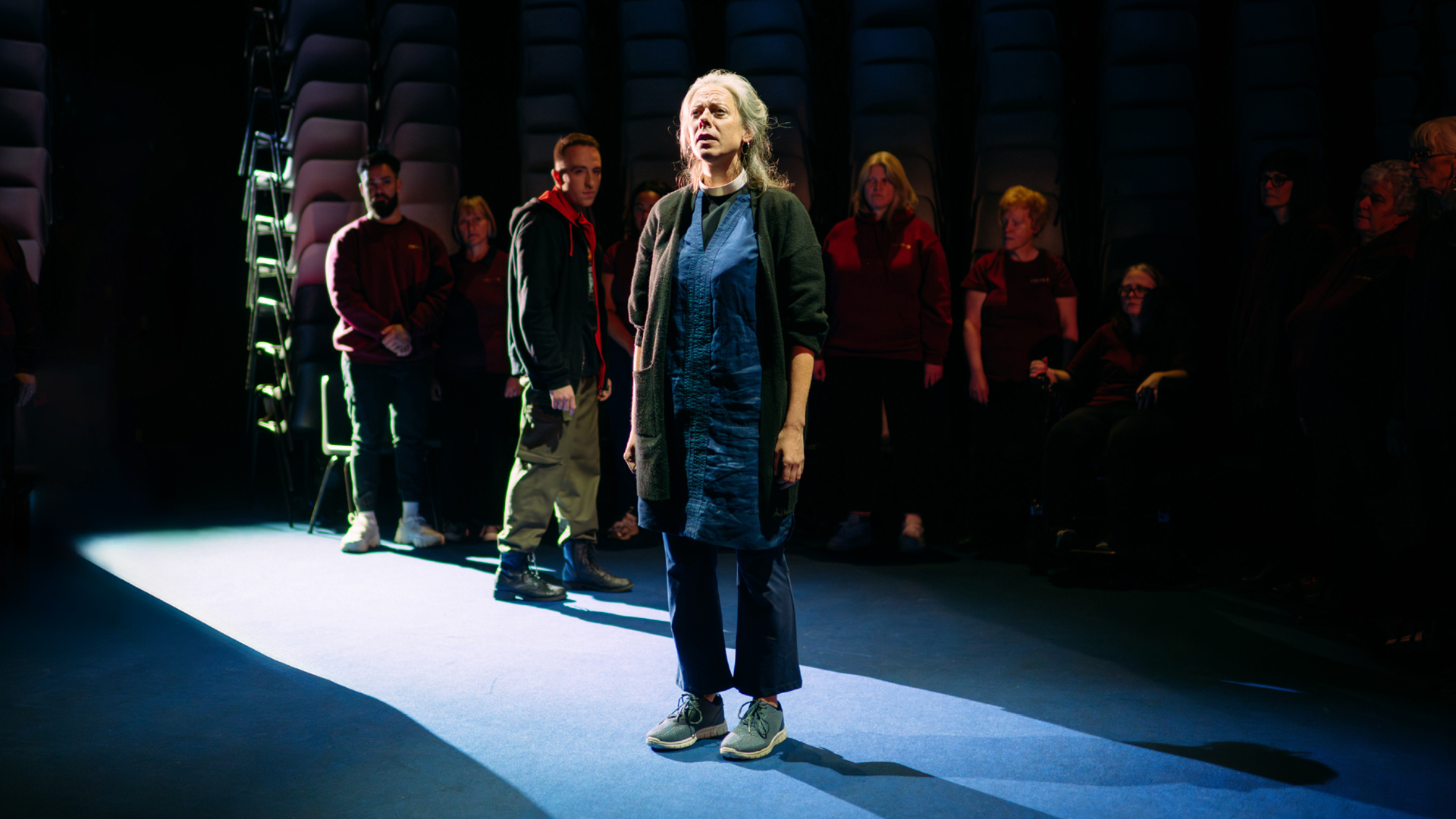Consumed, Dreambite Collective Review
Reviewed by Danai for Theatre and Tonic
Disclaimer: Gifted tickets in exchange for an honest review
Consumed, presented at Camden People's Theatre, is the collaborative creation of writers Lydia Sabatini, Katrina Bennett, and Clare Stenning, and brought to life by performers Sophia Decaro, Nusrath Tapadar, Hugo Papiernik, and Clare Stenning. This ambitious piece brings together the experiences of three women, merging their stories into one narrative. Produced by the queer collective Dreambite, Consumed explores female desire and the boundaries between body and mind, ultimately portraying a singular female character through a complex thematic fusion.
Watching the three segments of Consumed unfold feels like a gradual, intensifying crescendo. The work is well crafted, offering rich thematic exploration that still lingers after the performance. As a unified piece, it is easy to reflect on its interconnectedness when revisiting what one saw after the show is over. However, each segment ends with a blackout, prompting the audience to applaud. This recurring break in the flow, while natural, risks fracturing the audience's perception of the work as a cohesive whole rather than separate, loosely connected shorts.
The first piece, Gummy Gummy, centers around a woman, embodied by Nusrath Tapadar, whose reliance on substances becomes a way of navigating life's highs and lows. Rather than remaining on the surface, the audience is drawn deep into Naomi's mind, where her partner’s voice fades as the protagonist becomes increasingly absorbed in her thoughts, analysing everything, getting distracted, and at times freaking out after having a hash gummy. Memorable moments include the laughter yoga scene where Hugo Papiernic plays a YouTuber, later haunting the protagonist’s mind, and a fascinating rewind sequence that reveals the dialogue the latter missed while she was high.
Lucid, the second piece, is deliberately disorienting—yet it serves a purpose. The protagonist’s sexual desires become more vivid, blurring the line between fantasy and reality. As her frustrations mount, it becomes harder for her to differentiate between the two, leaving her (and the audience) in a state of uncertainty. The constant tension between desire and reality is palpable, making the audience feel as though they are slipping into her fragmented consciousness. As with the rest of the performance, the acting here is undeniably strong, and the comedic elements of this story not only don’t take away but enhance its theme.
The final piece, You Are What You Eat, is truly an exceptional monologue. Its ability to hold the audience’s attention is rare, and it provides a fitting conclusion to Consumed with its incredible writing and acting of Clare Stenning. Here, the protagonist’s hunger for her own flesh is literal. She narrates her descent into self-cannibalism, describing the wounds, the doctors, her struggle to resist, and the ultimate surrender to her fantasy. After consuming her own body, she becomes ‘what she is eating’; herself.
While Consumed is a potent portrayal of fragility and desire, I wished for a deeper exploration of why these characters are consumed. The work touches on the complexities of living in a female body, but further examination of the forces behind this tension—the societal, emotional, or psychological pressures—could offer even greater insight into the intensity of the female experience.
Each of these women are ‘consumed’, either in a literal or a metaphorical sense. Consumed presents a unified female character flirting with self-destruction, trapped in a claustrophobic inner world where the lines between reality and fantasy are constantly blurred. The setting of a house heightens the audience's sense of entrapment, mirroring the protagonist’s suffocating state. Director Nell Bailey’s bold approach, alongside the powerful writing, invites the audience to be fully immersed in this intense exploration that is definitely a unique and memorable one.
At Camden People’s Theatre until 5 October 2024.
☆ ☆ ☆











